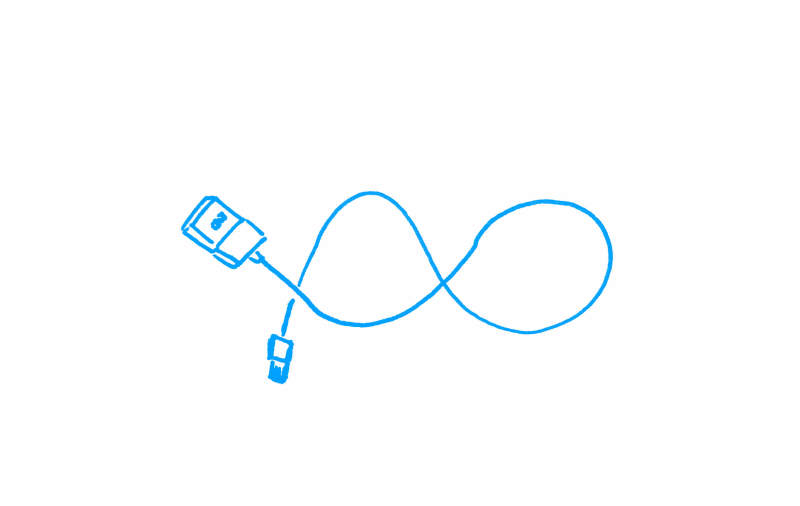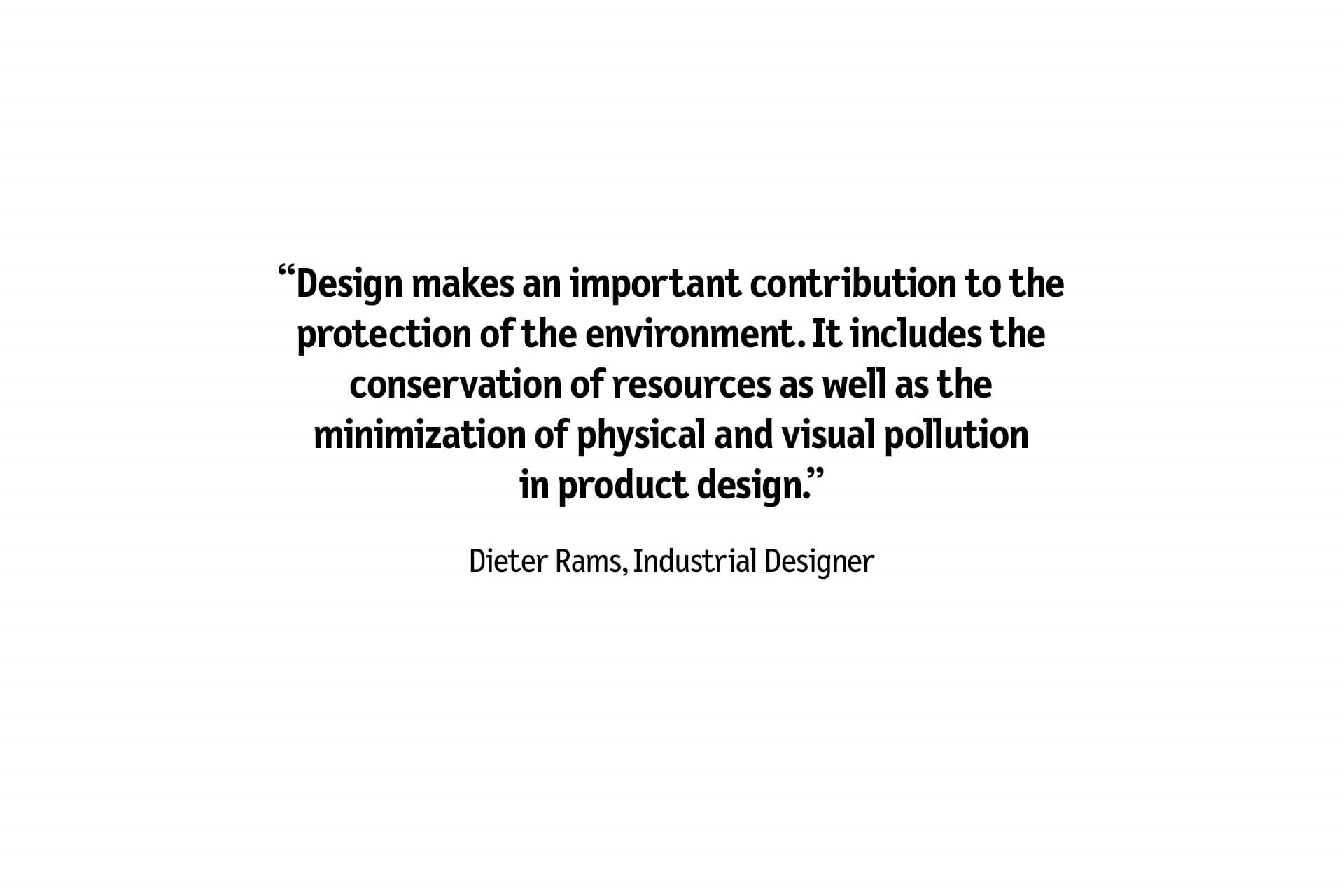Good design is environmentally friendly

How can Dieter Rams 10 principles for good design be applied to digital products?
The challenges brought about by climate change are not ones that need tackling soon. We are already right in the middle of them. From here on out, it’s a matter of consciously redesigning products, processes, and our lives. As designers we must direct our skills and creativity to bring environmental awareness into our work. Incidentally, this is nothing new. Dieter Rams wrote about the necessity of environmentally friendly design in his 10 Principles for Good Design back in the late 1970s. But how can we as digital designers contribute to resource-saving behavior within our work?
The good news is that there are already concrete practices that can be implemented in our daily work. The best-known being energy-saving handling of data. After all, processing data requires electricity, and much of that still comes from so called ‘brown energy’ sources like burning coal. PAGE reported early last year that “As a result (of data handling) the entire information and communications technology (ICT) sector emits as much CO2 per year as global air travel - 830 million tons, to be exact.”
What can we concretely do as designers?
Initially there needs to be a willingness to protect the environment on the part of every designer. Because as obvious as that sounds, it’s neither an everyday part of our work, nor are our outcomes traditionally measured by it. In the same PAGE article , Niklas Jordan says,
“The trouble is that sustainability is not currently a factor that is used to evaluate design. That has to change. I’m not saying we must only have black text on white pages. But we should have in mind the impact that our design decisions have on energy consumption.” (Translated by author)
The designer goes on to say that the sum of all the small savings makes all the difference, a key issue is optimizing the use of images and video. He is not arguing against the use of data-rich photos per se, just that awareness of them can help lead to conscious design decisions.
How open is my design system?
Dieter Rams 7th Principle, Durability also comes in to play for the environmentally friendly design of digital products. After all, this is another way to conserve resources. And this seems to be one of the biggest challenges because no other industry develops as quickly as the digital one. Not only technology, but also processes are changing at lightning speed and require interfaces to be adapted again and again. So, what is needed here are solutions that consider modifications from the outset. How open is my design system? How adaptive are the individual elements and how modular are processes and workflows? Often, the basic needs of users do not change completely. Content and supplementary functions, on the other hand, do.

Also, as designers and developers, we can decide how downwardly compatible applications are for systems. At the very least, this mitigates the pressure to constantly buy new devices which spare vital physical resources.
The Corona pandemic showed how quickly millions of tons of CO2 can be saved just by keeping people out of the office and working from home. So how can we as designers support remote working? What applications need a desktop solution and what features work on mobile devices?
Even if sustainability is not explicitly listed in our clients’ briefs, it should be a basic given for any design work: Though an attentiveness to the sustainability of digital design from conception to implementation, designers and teams can and should be a part of developing environmentally friendly solutions.

Contact
14482 Potsdam
potsdam@d-labs.com
10245 Berlin
berlin@d-labs.com
70173 Stuttgart
stuttgart@d-labs.com
